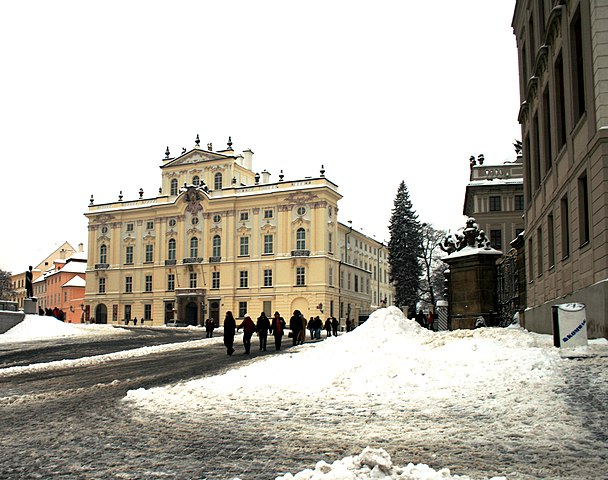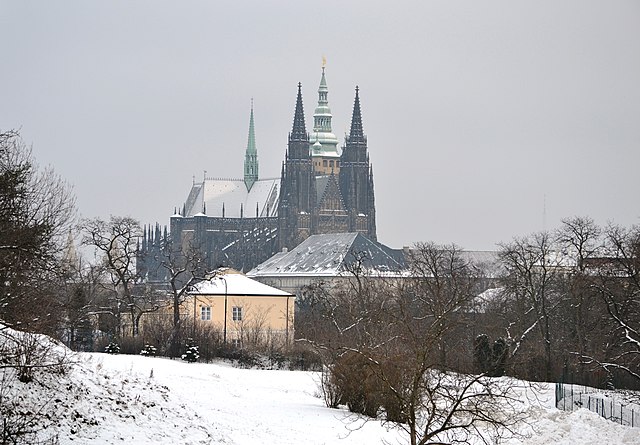
Starting on Oct. 26, an Unfolding Kafka Festival can be visited in Bangkok and Chiang Mai. It will include 14 art installations from 12 nations, along with art exhibitions, performances, and film screenings. Franz Kafka was a novelist and short-story writer who wrote in German. He was born in the city of Prague, now in the Czech Republic. The Thammasat University Library owns several books by and about Kafka.
The Thai choreographer Jitti Chompee, who founded the festival, has announced that the theme for 2019 is Kafka Zoo.
Among the experiences will be a virtual rality interpretation of Kafka’s celebrated story, known in English as Metamorphosis or The Transformation. As TU students of biology know, the noun metamorphosis signifies the process of transformation from an immature form to an adult form in two or more distinct stages for an insect or amphibian. stages. A metamorphosis can also mean more generally a change of the form or nature of a thing or person into a completely different one, by natural or supernatural means. The word derives from a Greek term meaning to transform or change shape.
The plural of metamorphosis is metamorphoses. The TU Library owns a number of books with the word metamorphoses in the title. They include Art and multitude: nine letters on art, followed by Metamorphoses: art and immaterial labour by Antonio Negri, translated by Ed Emery; The metamorphoses of fat: a history of obesity by Georges Vigarello, translated from the French by C. Jon Delogu; The metamorphoses of kinship by Maurice Godelier, translated by Nora Scott; Metamorphoses of the body by Jose Gil, translated by Stephen Muecke; Metamorphoses of the city: on the Western dynamic by Pierre Manent, translated by Marc Lepain; Pablo Picasso: metamorphoses of the human form graphic works, 1895-1972, edited by Roland Doschka, translated by Almuth Seebohm and David Radzinowicz Howell; and Robinson Crusoe: myths and metamorphoses, edited by Lieve Spaas and Brian Stimpson; among others.

One of the earliest and best remembered books with the word metamorphoses in the title is The Metamorphoses, a Latin narrative poem written by the Roman poet Ovid over 2000 years ago. TU students may borrow it by using the TU Library Interlibrary Loan (ILL) service.
In the tale by Kafka, a badly treated employee wakes up one morning and finds he has been changed into a dung beetle. Visitors to this virtual reality exhibit will be invited to put on a headset and get the impression of what it would be like to be an insect.
Among the sites for Unfolding Kafka Festival this year in Bangkok will be Goethe-Institut, the Sodsai Pantoomkomol Center for Dramatic Arts of Chulalongkorn University, Hostbkk Theatre, the Jim Thompson House, the Neilson Hays Library, Rose Hotel Bangkok, and the Siam Society.
In Chiang Mai, it will be featured at Maiiam Contemporary Art Museum.
The Metamorphosis is one of the stories that has led to the adjective Kafkaesque entering the English language. We sometimes see it used in academic research or theses, to mean having to do with Franz Kafka or his writings, but especially to describe something that is like a nightmare, too complicated, strange, or not making any sense.

Funny or tragic?
According to some literary historians, when Kafka read his stories to his friends, they laughed at them, thinking they were funny. Other readers consider them sad tales about the human condition in modern times. By looking at the opening of The Metamorphosis, TU students can make up their own minds whether what happens to the protagonist is sad or funny:
One morning, as Gregor Samsa was waking up from anxious dreams, he discovered that in bed he had been changed into a monstrous verminous bug. He lay on his armour-hard back and saw, as he lifted his head up a little, his brown, arched abdomen divided up into rigid bow-like sections. From this height the blanket, just about ready to slide off completely, could hardly stay in place. His numerous legs, pitifully thin in comparison to the rest of his circumference, flickered helplessly before his eyes.
‘What’s happened to me,’ he thought. It was no dream. His room, a proper room for a human being, only somewhat too small, lay quietly between the four well-known walls. Above the table, on which an unpacked collection of sample cloth goods was spread out (Samsa was a traveling salesman) hung the picture which he had cut out of an illustrated magazine a little while ago and set in a pretty gilt frame. It was a picture of a woman with a fur hat and a fur boa. She sat erect there, lifting up in the direction of the viewer a solid fur muff into which her entire forearm disappeared.
Gregor’s glance then turned to the window. The dreary weather (the rain drops were falling audibly down on the metal window ledge) made him quite melancholy. ‘Why don’t I keep sleeping for a little while longer and forget all this foolishness,’ he thought. But this was entirely impractical, for he was used to sleeping on his right side, and in his present state he couldn’t get himself into this position. No matter how hard he threw himself onto his right side, he always rolled again onto his back. He must have tried it a hundred times, closing his eyes, so that he would not have to see the wriggling legs, and gave up only when he began to feel a light, dull pain in his side which he had never felt before.
‘O God,’ he thought, ‘what a demanding job I’ve chosen! Day in, day out on the road. The stresses of trade are much greater than the work going on at head office, and, in addition to that, I have to deal with the problems of traveling, the worries about train connections, irregular bad food, temporary and constantly changing human relationships which never come from the heart. To hell with it all!’ He felt a slight itching on the top of his abdomen. He slowly pushed himself on his back closer to the bed post so that he could lift his head more easily, found the itchy part, which was entirely covered with small white spots (he did not know what to make of them), and wanted to feel the place with a leg. But he retracted it immediately, for the contact felt like a cold shower all over him.
He slid back again into his earlier position. ‘This getting up early,’ he thought, ‘makes a man quite idiotic. A man must have his sleep. Other traveling salesmen live like harem women.
(All images courtesy of Wikimedia Commons)

